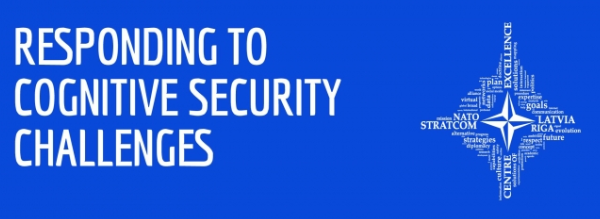It’s snowing metaphoric chyrons, ignore unless interested 7
[ by Charles Cameron — chyrons, yes — but also a mini-essay on what happens when loose fingertips sink ops — and including a multi-math game physicists play ]
.
IMO, defang is a great word — so I was delighted to hear the phrase, Mr. Trump’s attempts to defang the investigations…
Let’s get to work, there’s lots to cover:
**
Chyrons:
We’ve had bombshells before — meet new bombshells.
A regular fight metaphor:
An extraordinary one – jumping on a grenade!
And this one’s good, from the Georgia voter suppression story:
Running? D’oh, must be a sports metaphor:
and two from the 11th hour with Bryan Williams:
sustained and secretive assault is quite fine!
**
Words heard:
The Secretary of State in Georgia not only administered the election, he falsely accused the Democratic party of hacking to cover up his incompetence the weekend before the election, and he systematically harmed voters over a decade — he was not only the contestant, he was the score-keeper the referee. And there is no equitable system that allows that to be so. It’s not fair.
Rachel Maddow on Manafort, 2/19/2019:
And that fairly dire circumstance, the fact that sixty-nine and a half year old Paul Manafort is now looking down the twin barrels of a sentence from this Federal judge in Virginia and then another sentence from this Federal judge in DC, at’s, honestly is a crisis of his own making ..
And this — Neal Katyal called Trump Grandmaster Pinocchio. Now that’s certainly a Disney reference, but is it also a ref to hip hop — Grandmaster Flash — or chess — Kasparov?
**
Headers:
Catfishing was a new one on me, but certainly striking! Apparently it goes with sextortion:
Members of the military happen to be particularly high-profile targets for scams like catfishing and sextortion. Recently, a group of inmates in South Carolina were busted for allegedly blackmailing 442 service members using fake personas on online dating services. Not only can these tactics hit service members’ wallets, they may also represent a security risk if the victims have access to sensitive information.
Okay, it has natsec implications, and is clearly a word I need to learn.
The catfishing, here, was by a NATO research org, red teaming to see what NATO soldiers, with a little prompting, might reveal on social media:
The phony Facebook pages looked just like the real thing. They were designed to mimic pages that service members use to connect. One appeared to be geared toward a large-scale, military exercise in Europe and was populated by a handful of accounts that appeared to be real service members.
In reality, both the pages and the accounts were created and operated by researchers at NATO’s Strategic Communications Center of Excellence, a research group that’s affiliated with NATO. They were acting as a “red team” on behalf of the military to test just how much they could influence soldiers’ real-world actions through social media manipulation.
The results indicated that soldiers did indeed tend to leak information that “bad actors” might appreciate and use against them, or against NATO forces more generally:
By the end of the exercise, the researchers identified 150 soldiers, found the locations of several battalions, tracked troop movements, and compelled service members to engage in “undesirable behavior,” including leaving their positions against orders.
And guess what? The Russians are aware of the same possibility, and have banned the use of smartphones and similar devices by their troops as a consequence:
That combo of articles comes to us via Michael Robinson, to whom I must once again offer my grateful thanks.
And one thing more: the NATO group issued a report, and its title intrigued me:
Cognitive security was another term that’s new to me — IBM / Watson defines it thus:
Cognitive security combines the strengths of artificial intelligence and human intelligence. Cognitive AI learns with each interaction to proactively detect and analyze threats, providing actionable insights to security analysts for making informed decisions – with speed and accuracy.
That’s as much a sales pitch as a definition, but still gives us a sense of where these terms are trending.. and there’s reading to be done:
Wired, NATO Group Catfished Soldiers to Prove a Point About Privacy Guardian, Russia moves to mask its soldiers’ digital trail with smartphone ban NATO Stratcom, Responding to Cognitive Security Challenges IBM, Artificial intelligence for a smarter kind of cybersecurity
That’s our mini-essay for the day, and maybe the week!
**
Now think on this:
**
Game on!
Let’s end today’s snow-sweep with a game metaphor applied to physics, or maybe I should say the philosophy and practice of physics: it’s a game in which the rules — in this case, mathematical languages — change from move to move — from Natalie Wolchover‘s A Different Kind of Theory of Everything:
It happens again and again that, when there are many possible descriptions of a physical situation—all making equivalent predictions, yet all wildly different in premise—one will turn out to be preferable, because it extends to an underlying reality, seeming to account for more of the universe at once. And yet this new description might, in turn, have multiple formulations—and one of those alternatives may apply even more broadly. It’s as though physicists are playing a modified telephone game in which, with each whisper, the message is translated into a different language. The languages describe different scales or domains of the same reality but aren’t always related etymologically. In this modified game, the objective isn’t—or isn’t only—to seek a bedrock equation governing reality’s smallest bits. The existence of this branching, interconnected web of mathematical languages, each with its own associated picture of the world, is what needs to be understood.
That’s it!













